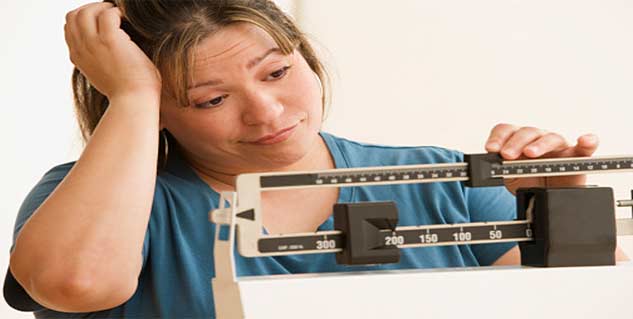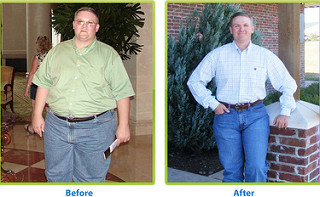97% Fat Free...Not! 97% Fat Free...Not!
We've all heard of the term 97% Fat Free, It's everywhere, just take a walk down the dairy isle of your local supermarket and you will soon see how popular it has become. I would take a stab at saying 75% of all products in this isle wear some sort of Fat Free advertising but let's get straight to the point here, have you become a victim of sales psychology?, yes that's right, sales psychology!. Sure these products may contain less fat, but just out of curiosity, have you ever compared the carbohydrate/sugar levels of a Fat Free consumable and an ordinary product. If you have, you would clearly see that while these products have reduced levels of fat, they have considerably higher sugar/carbohydrate levels. So in actual fact, what these companies are doing is brain washing consumers into believing that their products can have a significant impact on weight gain or even weight loss. Have you ever noticed how these products don't say "fat-free." They simply claim to be mostly fat-free. Pick up some ground turkey that blares out on the front of its packaging, 97% Fat-Free. Turn the container over and compare the number of calories per serving (145) to the number of calories from fat (70). You don't have to be a mathematical wizard to determine that nearly half of the calories in this 97% Fat-Free labeled food come from fat!
Here's how they get away with that little trick. If I were to eat a stick of butter (which I won't do), I'd of course be getting 100% of my calories from fat. If I'd drink some water with it, I'd still be getting 100% of my calories from fat, since water doesn't have any caloric value. If, therefore, I were to create a solution, 50% butter, 50% water, I'd have a solution that gets 100% of its calories from fat. If, however, I were going to be a creative food labeller, I could put a label on this product that says "50% fat-free." Since, judging by volume, most of what's in that turkey package is water, they are misleading you by giving you a percentage of the "volume" that is fat free rather than a percentage of calories. Always ignore the big print on the front. Look at the calories per serving and the calories from fat. You can't be sure you'll find accuracy, but your more likely to come closer to the truth than you will when reading the "% Fat Free" announcement that helps to sell the product. This technique, by the way, is used to sell 2% milk as 98% Fat Free. Try it out, check out the calories per serving and the calories from fat. You're in for an eye-opening surprise.
When it comes to weight sustainability, gain and loss, the term 'fat' when associated with food is often confused by indifferent meanings. Lets get one thing straight...These Fat Free marketers want us to believe that there are less calories in their fat content purely because they understand the social impact the word 'FAT' has on society. Their whole aim is to convince the consumer that eating fat makes you fat. Weight gain is a true reflection of calorie overload, not just fat overload. It all comes back to the simple philosophy, only feed your body with the fuel it requires to produce enough energy to fulfill your active requirements. Anything over is only going to be stored. The truth of the matter is, we actually use dietary fat for effects like long-lasting energy and satiety (feeling full after eating), and the body uses it for things like cell membrane function, body temperature and brain regulation and nervous system activity so really when these products promote Fat Free content all they are doing is psychologically confusing you into believing that if you eat fat it will be stored as fat and hence you will get fat...Powerful Stuff!.
In conclusion, dependence on fat-free foods is actually counterproductive to the goals of weight loss and health. Fat plays an important role in health and wellness. An ideal diet plan encourages a balance of fat, protein, carbohydrate and vegetables along with moderation, portion control and exercise. Some fat in your diet will help keep you feeling satisfied and in better control of your weight so before you go for the big 97% Fat Free logo at your next shopping expedition, be prepared, by understanding the sales strategy behind these major players trying to turn a profit and take the time to flip the packet and do some research.
-
Top Weight Loss Techniques - How Does Your Weight Affect You Emotionally?
People who are obese or overweight face many difficulties their normal
-
Weight Loss Tip Drink More Water
Water plays a vital role in losing weight: It helps you feel full so y
-
What is the definition of Free Radicals And Antioxidants?
What Are Free Radicals? A persons body makes free radicals during o
-
Healthy Nutrition and weight loss
In total there are over 500 naturally amino acids, the proteins in
-
Lose Weight Really Fast - 3 Tips To Shed Those Pounds The Natural Way!
Most people nowadays are trying to find a miraculous weight loss progr
-
Diet Pills Tremendous Temptation Huge Frauds
False campaignsMore than 50 percent of Americans and Canadians are ove
- DON'T MISS
- Read Proactol Reviews and Then Experience the Magic of Proactol Plus
- Arizonas Chandler Boot Camp Provides Exploding Fat Loss Results!
- Lower Abdominal Muscle Exercises
- Tips To Loose Belly Fat
- Fat Burning Cardio Zone Myth
- The 101 on Child Weight Loss Camps
- How to Lose Weight This Summer
- My Weight Loss Epiphany
- Your Runs Are Sabotaging Your Weight Loss. Heres What To Do Instead
- Idiot’s Fat Loss Statements Are 4 Idiots




